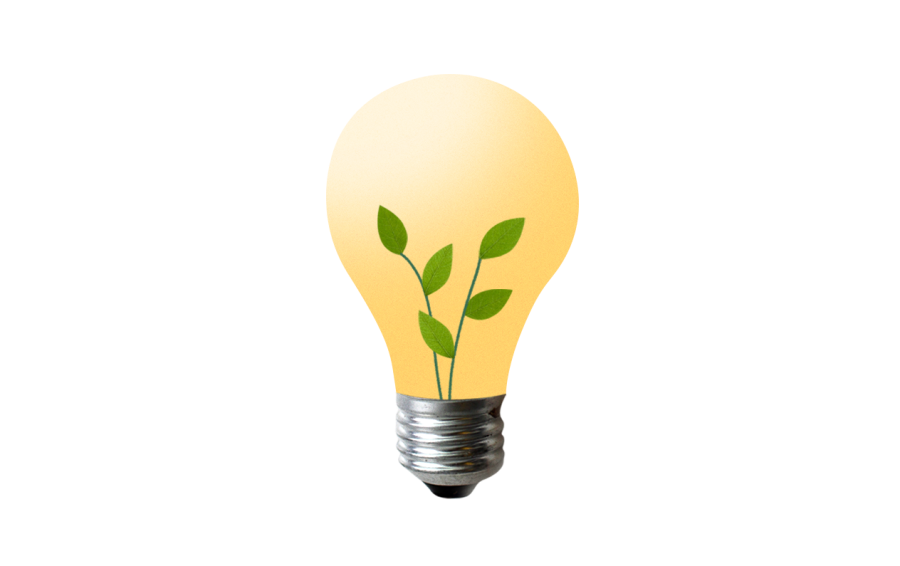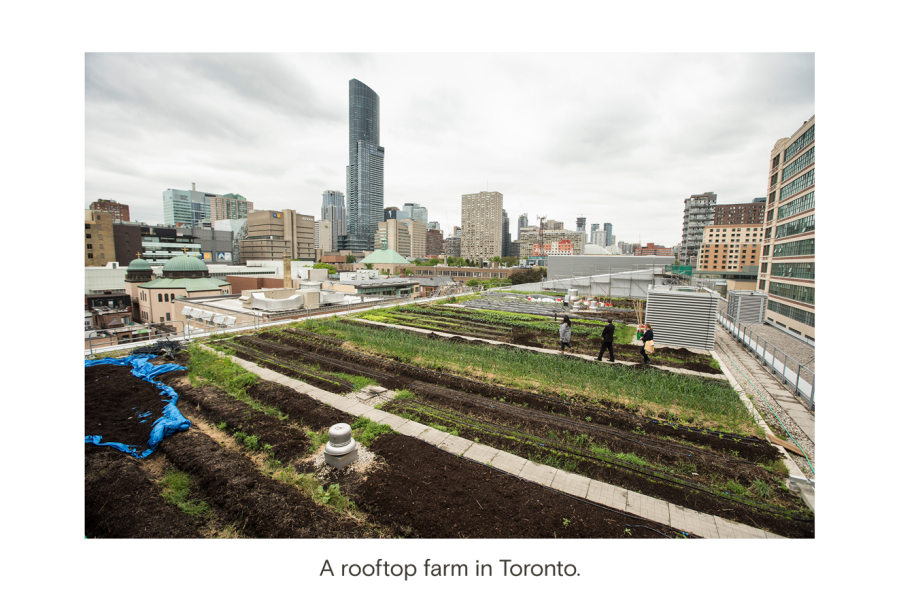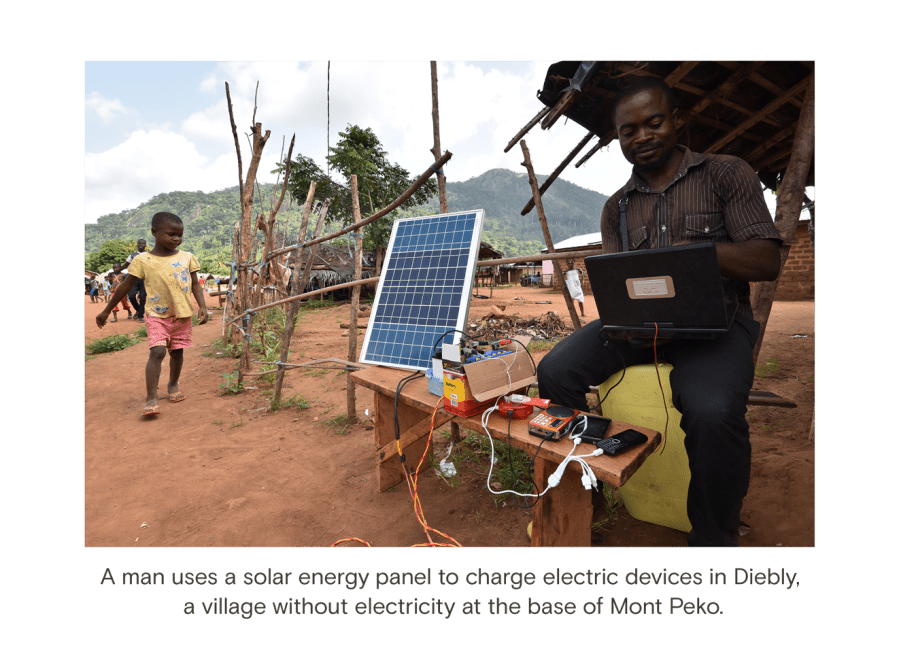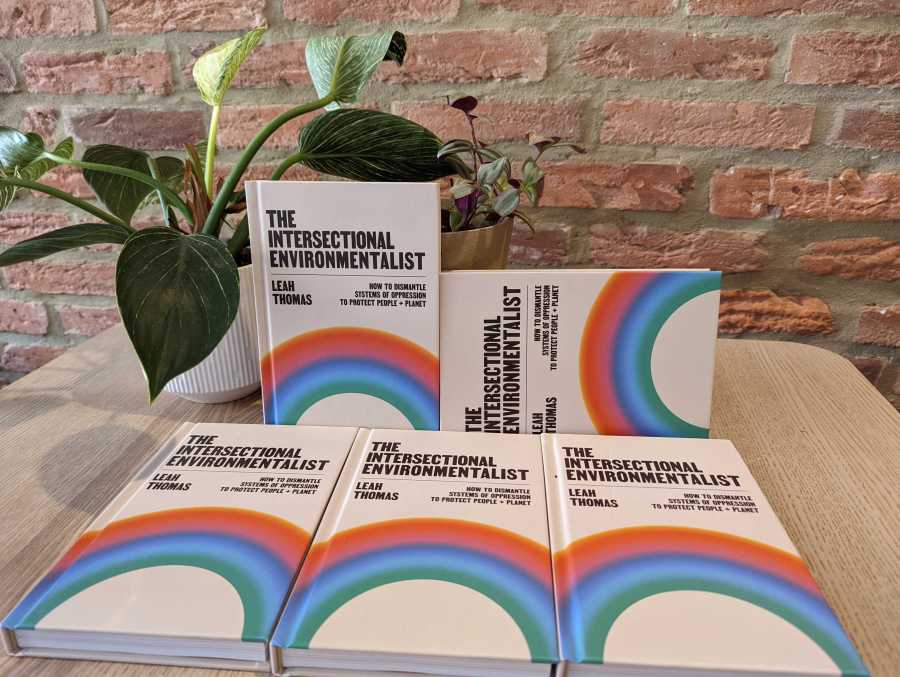Hey, Looking Forward reader! We want to know what you think about this newsletter: what’s hitting, what’s missing, and what could make it a better experience for you. Here’s a quick survey. We’d so appreciate your feedback — we promise it won’t take long. And as a token of gratitude, we’re giving away five copies of The Intersectional Environmentalist, a new book by the marvelous Leah Thomas. More deets below.

The vision
“Climate change is the result of more than a century of unsustainable energy and land use, and patterns of consumption and production. What this report has done is to show how taking action now can move us towards a fairer and more livable world. We know what to do, we know how to do it, and now it’s up to us to take action.”
— Jim Skea, co-chair of IPCC working group III

The spotlight
If you’ve been shying away from IPCC news this week, I wouldn’t blame you. Monday’s report, the third and final installment of the Intergovernmental Panel on Climate Change’s sixth assessment, paints a grim picture. U.N. Secretary General Antonio Guterres called it “a file of shame” revealing “a litany of broken climate promises.” Headlines have framed it as an “ultimatum” and a “final warning.” And indeed, it may be the last mitigation report the IPCC will have a chance to publish before our window of opportunity to keep warming to 1.5 degrees C closes. Already, it’s almost inevitable that we will shoot past the 1.5 mark temporarily (although global temperatures could stabilize below that later this century).
Still, beneath the dire warning lies a glimmer of possibility. Although the report’s headline is that we need to ditch fossil fuels, and fast, it also offers a glimpse of what the world could look like when we do. The report provides evidence that climate action can create an array of benefits for other aspects of society — challenging the narrative that sometimes prevails, that cutting our emissions will require sacrifice and will come at the cost of progress.
“There are people who think that this transformation that is outlined would lead to reduced quality of life,” says Edward Byers, a water and energy systems researcher at the International Institute for Applied Systems Analysis and one of the report’s authors. “And I think that’s simply not the case.”
In fact, Byers emphasizes, the report shows there is mounting evidence that transformative climate action can contribute to achieving the U.N.’s sustainable development goals, which include things like gender equality, education, health, and eliminating hunger and poverty.

That is to say, a complete energy transformation would not only save our behinds from catastrophic warming, but should actually make life better.
“The report goes as far as to say that sustainable development is not possible without climate action,” Byers explains.
The U.N. established its development goals in 2015, a year after the last IPCC assessment, and the authors of this year’s mitigation report used them as a framework for investigating the impacts and feasibility of climate solutions.
For example, the summary for policymakers finds that “measures promoting walkable urban areas combined with electrification and renewable energy can create health co-benefits from cleaner air and benefits from enhanced mobility.”
The report also notes that green spaces like parks, living roofs, and urban farms provide layered benefits by acting as carbon sinks, reducing flood risks, and easing the urban heat island effect. In rural settings, practices like agroforestry, cover cropping, and switching to perennials can “enhance resilience by maintaining land productivity and protecting and diversifying livelihoods.”
Transitioning to clean energy is the report’s most urgent priority — and, encouragingly, it’s one area where we see robust signs of progress. Byers highlights the fact that, since 2010, there have been huge reductions in the cost of renewable energy options like solar and wind, accompanied by a massive scale-up. The rise of small-scale renewables could present an opportunity to bring power to communities that previously didn’t have it, because connecting to the centralized, fossil fuel-powered grid was too expensive. That electricity then “allows [people] to study at night, helps them power a water pump that improves the quality of the water supply,” Byers says. “That just goes on and on.”

Still, these broader societal benefits are not guaranteed. For instance, with land-based strategies like reforestation, the report finds that maximizing co-benefits will depend on the involvement of local communities, particularly Indigenous groups. It all comes down to the way climate solutions are implemented. “Effective policy packages would be comprehensive in coverage, harnessed to a clear vision for change, balanced across objectives,” and tailored to the unique needs of specific communities or countries, the report summary states.
The IPCC’s move to connect climate action with sustainable development reflects a broader cultural shift. In the years since the last IPCC assessment, a rapidly growing body of research has explored the linkages between climate and fields like psychology, sociology, gender, and political science (which the new report draws on in its more than 18,000 citations). This ballooning of the science suggests a growing hunger to understand how climate change, and the action we take to protect ourselves from it, touches all aspects of life and society — and a growing acceptance that climate cannot be held apart from equity.
All of this offers a reason for hope — but not complacency. Although the report does find that climate action is growing, we’re not yet on a trajectory to that better, more equitable world and to curtailing emissions enough and in time to avoid the worst consequences of the climate crisis.
“What the report absolutely makes clear is that we’re not talking about business as usual, if we are going to address the challenge of climate change,” Jim Skea, a sustainable energy professor and co-chair of the IPCC working group, told reporters on Monday. We have the tools we need to slash greenhouse gas emissions in every sector, and to increase jobs, create health benefits, and promote equity — but doing that will require huge societal transformation.
“It will be difficult to mitigate climate change and mitigate our emissions,” Byers says, “but it’s a challenge that needs to be embraced.”
— Claire Elise Thompson
More exposure
- Read: a take on the IPCC naming “colonialism” for the first time as a force that contributes to the climate crisis, and why that matters (Atmos)
- Read: an exploration of the war in Ukraine and what it means for our transition away from fossil fuels (The Conversation)
- Read: a Q&A with climate leader Christiana Figueres delving into some takeaways — scientific, political, and emotional — from the report (Bloomberg Green)
- Read: this breakdown of key visuals from the report (CNBC)
- Watch: the newly dropped season of Better Call Saul, or your preferred escapism. You’ve earned a break.
A parting shot
… Another great break activity would be taking our reader survey — we’d love to hear what you enjoy about Looking Forward and what you’d like to see change! Help us make this newsletter the most valuable resource it can be for you. It should only take about 5 minutes, and we’ll use your feedback to inform the future of Looking Forward.
Click here to take the survey.
And for sharing your input with us, we’re excited to share something with a few of you. We’re giving away five copies of The Intersectional Environmentalist, by 2021 Grist 50 Fixer Leah Thomas (published by Voracious). This book is a primer for activists and curious folks who want to deepen their understanding of environmentalism, racism, and privilege, and how to create inclusive change. We’ll do a random drawing of survey participants — and if you’re one of the winners, I will personally mail you one of these gorgeous books.



